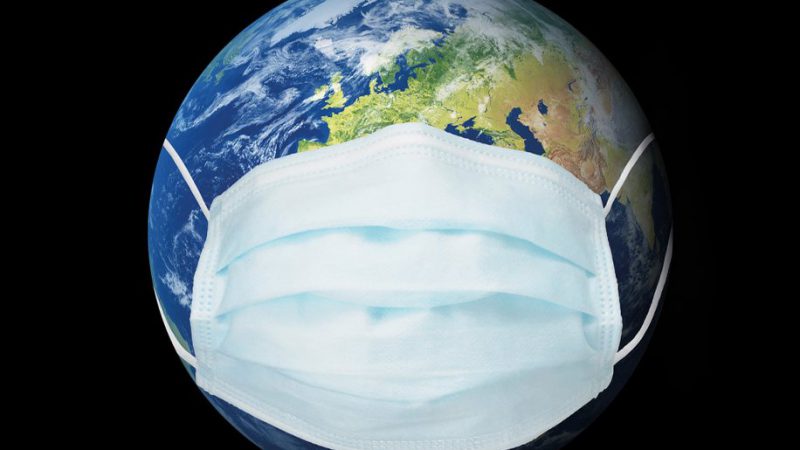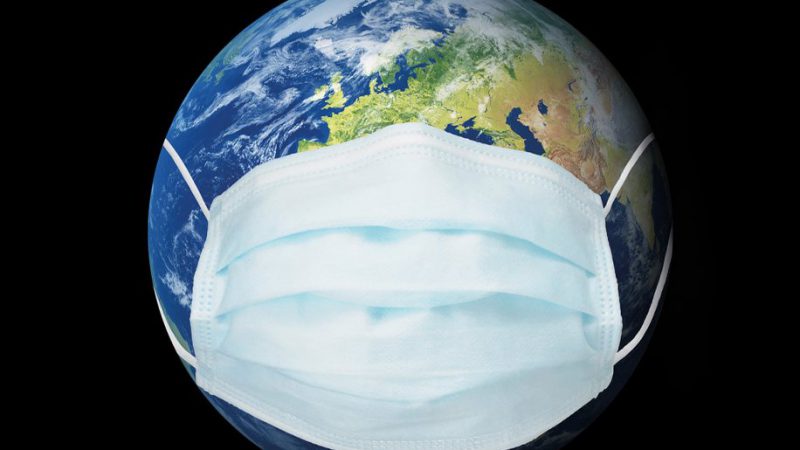World’s Travel Groups Urge Unified Approach to Pandemic
Alphabet soup of industry organizations call on governments to abandon quarantines and adopt a global standard restarting travel
February 3, 2021


WTTC Plans for Air Travel Comeback
The World Travel & Tourism Council has announced its plan for the safe restoration of international business travel, offsetting some of the economic damage caused by the ongoing coronavirus crisis by restoring air corridors between the world’s top financial centers.
The WTTC’s pilot program between London and New York will involve at least two rounds of airport-based COVID-19 testing, which studies have shown could be as much as 80 percent effective in identifying passengers with the virus.
While the restoration of international business travel could benefit the entire tourism industry, the organization has long held the position that, “it can only reopen when governments take a targeted approach and abandon the countrywide quarantines which have a devastating economic impact.”
Gloria Guevera, WTTC president, said flights must be restored along “city corridors” linking cities with similar low COVID-19 case numbers, such as between London and New York, Washington, Paris, Frankfurt, Dubai, Amsterdam, Hong Kong and Shanghai.
IATA Seeks Coordination and Cooperation
The International Air Transport Association is calling on governments to partner with commercial aviation to develop plans to safely re-link people, business and economies as the world gets the COVID-19 pandemic under control. The organization maintains that establishment of global standards for vaccination and testing certification must be “a priority” for governments.
“We can see the light at the end of the tunnel as vaccination programs roll out,” said Alexandre de Juniac, IATA’s outgoing director general and CEO. “Turning this vision into a safe and orderly re-start will require careful planning and coordination by governments and industry.”
IATA has outlined three key principals for developing global standards:
Vaccination certificates: Digitally records of vaccination information will be critical to restarting international travel. The World Health Organization is leading efforts to establish standards needed to roll out a Smart Vaccination Certificate as the digital successor to the “yellow book” used to manage vaccinations such as yellow fever.
Global framework for testing: The Organization for Economic Co-operation and Development is laying the foundation for a global framework for testing data standards that will allow governments to recognize trusted test results. Standardizing the appropriate testing certificates is also essential.
Digital Travel Credential: ICAO has published standards to create digital travel credentials from ePassports. Along with enabling contactless travel as recommended by ICAO-CART guidelines, the credentials are an essential component in digitally matching travelers to their vaccination and testing certificates. The standard exists, according to IATA; the challenge now is implementation.
As part of the drive to establish global standards, IATA has developed Travel Pass, an industry solution that will help governments, airlines and individual travelers manage vaccine or testing requirements with accurate information, secure identification and verified data. Since it is an industry-supported solution, it will be cost effective, protect privacy and respect global standards.
Global standards are essential: Underlying the re-establishment of air connectivity is the development of global standards so that the requirements of one country can be followed by travelers originating in other jurisdictions.
“As we have seen, unilateral government decisions are very effective in shutting down global mobility,” said de Juniac. “Re-establishing the freedom to travel, however, can only be done with cooperation. Governments are already seeing how challenging that will be without global standards for vaccines or tests.”
GBTA Calls for End to Quarantines
The Global Business Travel Association is calling on governments around the world to abandon quarantines as a means of preventing the spread of COVID-19.
In a statement, Dave Hilfman, interim executive director, said the business travel industry continues to support all necessary and practical measures to make travel safe again. These measures should continue to be science-based and to strike the appropriate balance between public health and protecting the global economy, he added.
Multiple studies suggest that quarantines rank far down the list of effective COVID-19 mitigation measures, said Hilfman. So the moves governments are making toward enacting quarantines despite the science that questions their effectiveness creates a real problem.
Pre-departure testing can help ensure the safety of travelers and residents, while allowing essential international travel to take place without compromising public health.
At a time when the business travel industry continues to fight for its existence, said Hilfman, “a comprehensive approach that does not embrace quarantines can help stop the pandemic and stop the further proliferation of job losses and financial ruin.”
USTA Works for Policies Supporting Business Travel, Meetings & Events
“When we discuss travel reopening,” said Roger Dow, CEO of the US Travel Association, “we must also keep a keen eye on business travel and meetings and events, along with leisure travel.”
In his annual State of the Travel Industry address, Dow said that while platforms like Zoom have helped people stay in contact during the pandemic, “we need to look forward to a time when we can really safely do business in person again.”
Dow said there is too much value in face-to-face meetings, business events and conventions, “and the powerful boost they give to local and regional economies that is simply too great to ignore.”
Dow also called for safely reopening international travel through testing, while governments should remove international travel bans. He said US Travel is in favor of testing passengers for international flights but not for domestic services. He also said quarantines are “disruptive” and that “layered” health and safety protocols are sufficient.
Dow called for streamlining travel facilitation through the consolidation of TSA PreCheck and other security systems and the expansion of biometric exit systems at airports.




